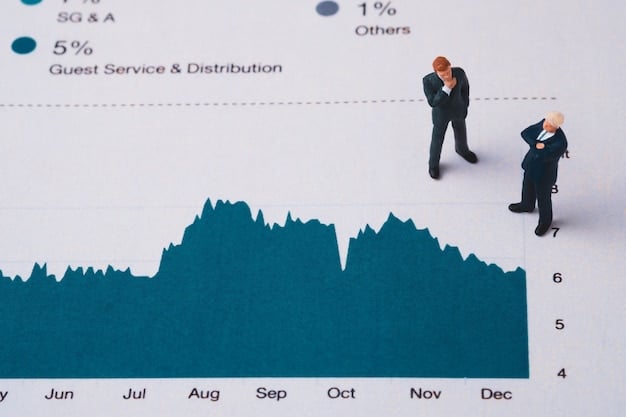Proposed US Immigration Policy Changes: Impacts on Businesses and Workers

Developing Story: Proposed Changes to US Immigration Policy – Impact on Businesses and Workers involves significant shifts that could reshape the workforce and operational strategies across various industries in the United States. These changes necessitate careful adaptation for both employers and employees.
The United States is currently contemplating significant changes to its immigration policy, a **developing story: proposed changes to US immigration policy – impact on businesses and workers** that will have far-reaching consequences. These potential reforms are not just bureaucratic adjustments; they represent a fundamental shift in how businesses operate and how workers, both native and foreign-born, navigate the employment landscape. Understanding the implications of these proposed changes is crucial for businesses and workers alike.
Understanding the Core of Proposed Immigration Changes
The proposed changes to US immigration policy encompass several key areas. Understanding these core components is essential for gauging the potential impact on businesses and workers. These proposed changes aim to address various issues, from border security to employment-based visas.
Key Areas of Focus
- Border Security: Stricter enforcement measures and enhanced surveillance technology.
- Employment-Based Visas: Potential adjustments to the H-1B visa program, impacting high-skilled workers.
- Family-Based Immigration: Possible modifications to the existing family sponsorship system.
- Pathways to Citizenship: Debates surrounding the legal status of undocumented immigrants.
The economic implications of these changes are significant, with potential effects on labor supply, wage levels, and overall business growth. Moreover, the social effects, related to cultural diversity and community integration, cannot be overlooked. Examining these impacts requires careful consideration.

Impact on Key Industries
Several key industries are likely to feel the effects of proposed immigration changes most acutely. These sectors rely heavily on immigrant labor and would need to adapt to policy shifts. These changes will have diverse impacts across different sectors.
Changes to immigration policy in the US will likely affect the technology sector due to its reliance on high-skilled foreign workers. Restrictions on H-1B visas, for example, could lead to a shortage of specialized talent and hinder innovation. Similarly, in agriculture, a reduction in available immigrant labor could disrupt production and increase costs, affecting food prices and overall supply.
Specific Industries and Their Vulnerabilities
- Technology: Heavily dependent on H-1B visa holders and specialized skills.
- Agriculture: Relies on seasonal immigrant labor for planting and harvesting.
- Healthcare: Employs a significant number of foreign-trained nurses and physicians.
How Businesses Can Adapt
Businesses need to proactively adapt to the proposed changes in immigration policy. Strategic adjustments and forward-thinking approaches can mitigate potential disruptions. These adjustments can ensure operational continuity.
Adaptation Strategies for Businesses
- Legal Compliance: Stay informed about the latest policy updates and ensure compliance.
- Workforce Planning: Develop strategies to address potential labor shortages.
- Training Programs: Invest in training programs to upskill the existing workforce.
- Lobbying and Advocacy: Engage with policymakers to advocate for business interests.
Strategic adaptations can help companies manage risk and uncertainty, ensuring long-term sustainability and competitive advantage amidst shifts in immigration policies. Businesses need to stay adaptable by training their staff and planning for shortages.
The Worker’s Perspective
From the worker’s perspective, developing story: proposed changes to US immigration policy – impact on businesses and workers brings both opportunities and challenges. Understanding these shifts is crucial for workers to make informed decisions. The changes can greatly affect job security and work environments.
If immigration policies become more restrictive, domestic wages could increase due to a reduced labor supply. This might lead to better pay for some workers, but could also result in increased costs of living and reduced competitiveness for businesses. A more restrictive immigration policy could also lead to fewer job opportunities in certain sectors. This would force workers to seek jobs in different fields or locations.

Opportunities and Challenges for Workers
- Wage Growth: Potential increase in wages for some domestic workers.
- Job Security: Changes in job availability due to labor market shifts and decreased competition.
- Legal Status: Increased uncertainty for undocumented workers and those seeking visas.
- Educational Opportunities: Need for ongoing education to remain competitive in a changing job market.
Workers should take proactive steps to prepare for these changes, including seeking legal advice, and investing in education or training. These actions can help workers adapt and thrive.
The Political and Social Context
The proposed immigration policy changes are deeply embedded in the broader political and social context of the United States. These policy changes reflect ongoing debates about national identity, economic fairness, and social cohesion.
Politics’ and Society’s Roles
- Political Polarization: Immigration remains a contentious issue, dividing political parties and interest groups.
- Public Opinion: Attitudes towards immigration are diverse and influenced by various factors.
- Economic Concerns: Debates over job displacement, wage stagnation, and economic inequality.
- Social Integration: Challenges related to cultural diversity, language barriers, and community cohesion.
The political and social context, encompassing public sentiments and societal values, is a dynamic one that influences policy outcomes. Policymakers must consider public views and social impacts in any potential reform.
Conclusion
| Key Aspect | Brief Description |
|---|---|
| 🚧 Border Security | Increased enforcement and tech surveillance at US borders. |
| 👨💼 Employment Visas | Changes may affect high-skilled foreign workers in key sectors. |
| 🌱 Industry Impact | Tech, agriculture, and healthcare sectors may experience worker shortages. |
| ⚖️ Business Adaptation | Companies should focus on legal compliance and workforce planning. |
Frequently Asked Questions
The changes may impact employment-based visas, border security, and pathways to citizenship. Changes related to H-1B visas in particular could affect the availability of skilled workers.
Industries like technology, agriculture, and healthcare are the most likely to experience significant changes, because they tend to rely heavily on foreign-born workers and specialized labor.
Workers might see increased wages due to reduced labor supply. They may also experience job insecurity if immigration policies lead to workforce restructuring, as many jobs are dependent on immigrant staff.
Businesses can focus on legal compliance, invest in workforce training, and lobby for policies that support their operational needs. They should also diversify their employment base.
The US immigration policy debate is highly charged, marked by political polarization, varying public opinions, and strong economic considerations. The debate will affect any reform in the coming periods.
Conclusion
The proposed changes to US immigration policy present both significant challenges and opportunities for businesses and workers. Staying informed, adapting strategically, and engaging in constructive dialogue are essential steps for navigating this evolving landscape. As this **developing story: proposed changes to US immigration policy – impact on businesses and workers** unfolds, proactive measures can help mitigate risks and foster a more resilient and adaptive workforce.





